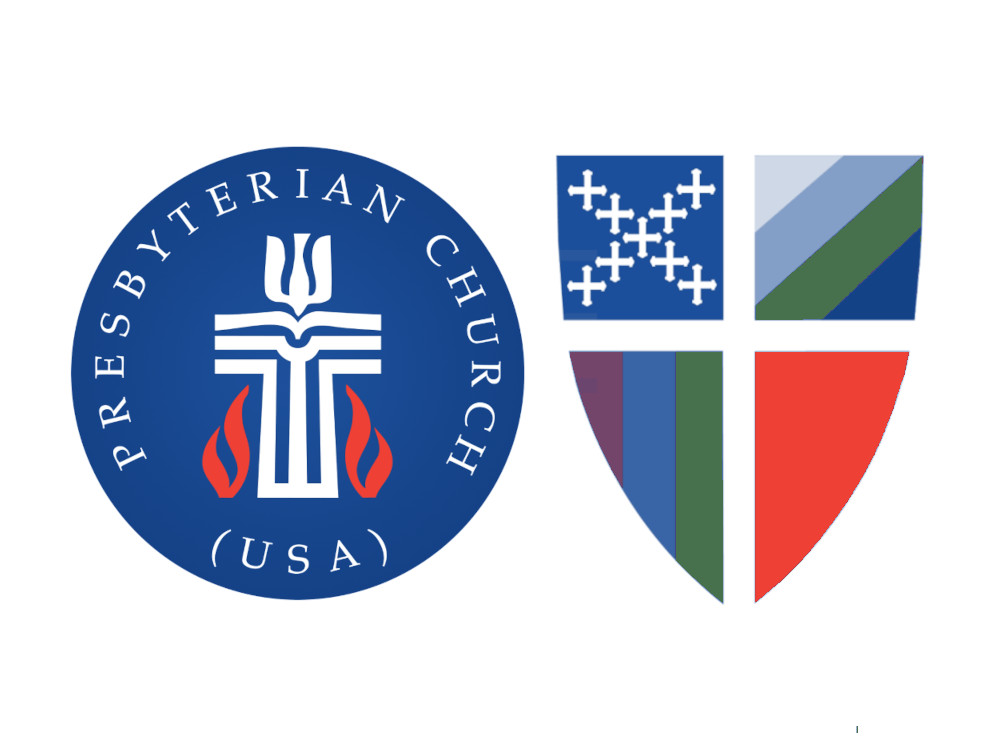Two possible clues to the future: the Presbyterian Church in the USA (PCUSA) is on course to be the first denomination to make it compulsory for clergy to be affirming, while the Episcopal Church now has publically declared priests in polyamorous relationships.
An “overture” (motion) that the PCUSA will consider at the General Assembly (church parliament) that is currently meeting makes two crucial changes – the first will add gender identity and sexual orientation to its anti-discrimination rules. Being added as protected classes in the PCUSA rule (numbered F-1.0403) includes LGBTQIA persons in a guarantee of “full participation and representation in its worship, governance, and emerging life to all persons or groups within its membership.” A second change means that “the principles of participation, representation, and non- discrimination found in F-1.0403” would be included in examining clergy candidates’ “calling, gifts, preparation, and suitability for the responsibilities of ordered ministry.” The progressive PCUSA has birthers several breakaways, the larger of which, The Presbyterian Church in America, is similar to our Presbyterian church of Australia.
Three former Episcopal priests recounted their experiences as polyamorous persons in an online discussion later reported by The Living Church magazine.
“Their candour has been costly in some cases,” Kirk Petersen reported. ” “One priest was abruptly fired by her bishop and forbidden to have any contact with her vestry or congregation. Another suddenly left one of the largest parishes in the country without explanation after proposing a book study on the topic. At least two other priests have renounced their ordination vows to escape ecclesiastical discipline.
“This is not a previous era’s war over homosexuality, but rather a present-day struggle over polyamory — “many loves.” A broader term is “consensual nonmonogamy” — relationships where everyone involved knows about and consents to a lack of exclusivity in sexual or romantic expression.”
Participants in the online discussion wanted the church to advance conversation on the topic – but The Episcopal church was clear, when advancing same-sex marriage, that marriahe was limited to “two persons.”
Slippery slope v momentum
Taken together, these two developments show that changes in church doctrine about human sexuality can give way to further demands for change: making affirming stances compulsory for clergy in the case of the Presbyterians and a push towards further liberalisation by including polyamory in the case of the Episcopalians.
Some readers will be inclined to think of a slippery slope. But this implies swift action, which may play out in the Presbyterian case. This would amount to an important “first”—the first denomination to make it compulsory for clergy to affirm LGBTQIA access to all ministry positions. But swift movement on polyamory is unlikely.
“Momentum” might be a useful description. Movement in church doctrine or policy requires the application of force – the mix of study, advocacy and political effort required to make a change. That involves momentum, which can continue after a change is made.
This is one reason why middle-range solutions such as same-sex blessings instead of same-sex marriage have only lasted a short time in churches – for example, in the Episcopal Church, the “Claiming the Blessing” campaign soon morphed into a same-sex marriage campaign.
In the Church of England, advocates of same-sex blessing already declare they want same-sex marriages in the Church.
A second factor is that rights-based campaigns, based on a claim that justice demands equal treatment, are built on logic that will move beyond compromise.
So, in the case of the PCUSA Presbyterians, giving the right for gays and lesbians to become pastors moves on to demand that all pastors support them. That means no room for conservatives.
In the case of polyamorous pastors, advances by gay and lesbian cohorts in an intersectional alliance bring about a demand that all sexual minorities be included.
Momentum will not always work, but combined with justice-based campaigning, it is a key ingredient in ensuring that change is followed by further change.
A second, possibly more potent ingredient is having removed a conservative safeguard for change, such as a Bible-based basis for rulemaking; there is little to push back against a church moving to adopt the ideas that permeate society around it. For this reason, change follows change.
Updated: to mention the Presbyterian Church in America.


my only critique might be to mention that the PCUSA is a ‘liberal’ movement as distinct from the PCA (Presbyterian Church in America) which is more ‘conservative’ and is similar to our local PCA (Presbyterian Church in Australia).
Fair point. Will note this. Then theres the Orthodox Presbyterian Church, Covenant Order of Evangelical Presbyterians, the Evangelical Presbyterian Church, and the Cumberland Presbyterian Church all of which could be called evangelical. The OPC is close intheology to our PCA too AFAIK!